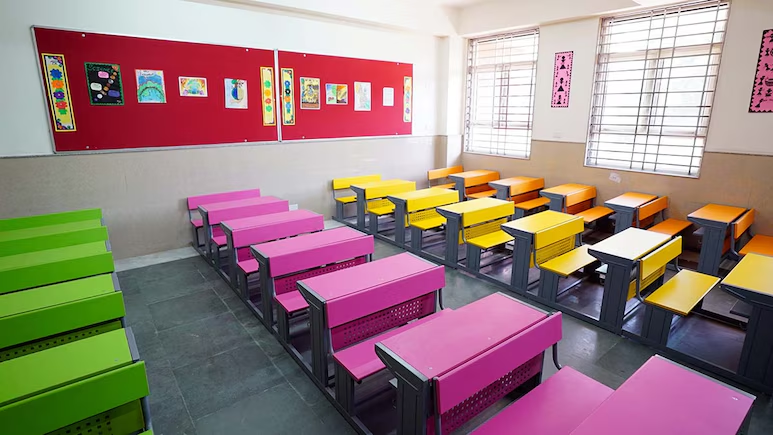
If there is one sector that has seen phenomenal growth during the pandemic, it is the ed-tech sector. According to a 2021 PwC report, the ed-tech sector is expected to grow at a compounded annual growth rate (CAGR) of 30% to reach a market size of $10.4 billion by 2025. The Indian ed-tech sector is crowded, with nearly 4,500 start-ups covering several sub-sectors. Moreover, the sector has also seen a funding boom since 2020. Last year, as per varying reports, the sector received over $4 billion in funding and saw three new unicorns- Eduditus, upGrad and Vedantu.
Since March 2020, school and college closures have forced institutions to look at the multi-modal digital mode of education. "Over the last 2 years, the ed-tech sector has provided major support for students locked out of their classes in schools and colleges," says Dr Akhil Shahani, CEO, ask.Careers, adding that a blended model of education may be the long-term future after the pandemic. In fact, a recent Western Union study indicated that 46% of students now prefer a hybrid mode of education.
While the New Education Policy (NEP) 2020 aims to provide impetus to online education, it also recognises the importance of "face-to-face, in-person" learning, indicating a blended mode of education. Echoing the growing urge for hybrid education, Mr Sahil Sheth, Founder, LIDO Learning, wishes for a bigger budget allocation for education, which can help in the integration of technology within traditional classroom-based learning.
Noting that a lot of ed-tech investment is directed largely towards K-12 or higher-order technical skills, ed-tech entrepreneur Mr Samyak Chakrabarty, founder of X Billion Skills Lab, now hopes that the 2022 Budget will also help in enabling mechanisms for enterprises to leverage emerging tech like Virtual Reality to teach vocational skills. “Given that unemployability is a looming crisis in India, the utility of new-age technology for training in vocational skills will lead to an enhancement of employability,” he says.
“Ed-tech companies can support the government in accelerating the integration between new-age skills and future-relevant skills and enhancing the learning outcomes,” adds Mr Nitesh Jain, CEO of BeSingular, an EdTech platform, while urging the government to focus on implementing the NEP in this Budget.
One of the key focus areas of the NEP 2020 is vocational and skills training for India's large workforce. The vocational and skills training sector is now looking for a much-needed renaissance in Budget 2022. Take this stat for some perspective: India Skills Report 2021 estimated the overall employability at 45.9 percent, which is a decline from 46.21 percent in 2020 and 47.38 percent in 2019. This clearly shows that India has been churning out unemployable graduates for years now.
“We hope the upcoming budget would allow higher education institutes to offer a wide variety of vocational programmes and skill-based training courses with greater private participation,” says Mr Anish Srikrishna, CEO, Times Professional Learning. “The Finance Minister must enhance the budget on new-age skills to ensure our workforce remains competitive,” adds Mr Hersh Shah, CEO of the India Affiliate of the Institute of Risk Management.
Even as the COVID-19 pandemic continues to rage across India, the ed-tech sector also faces a number of closely-linked issues like the ‘digital divide' between metros and Tier 2 and 3 cities and poor digital infrastructure at the ground level. The Remote Learning Reachability report (2020) by UNICEF stated that only 24 per cent of households have access to the internet across the country, while a 2020 study titled “The myths of online education Understanding the challenges of online teaching and learning” by the Azim Premji Foundation found that 60 percent of schoolchildren didn't have access to the internet.
Mr Sheth says that smartphones and Internet penetration will play a role in the progress of ed-tech in 2022. "I hope the union budget announces programmes to solidify Internet infrastructure and ensure last-mile connectivity in tier 2 and tier 3 cities," he says. Mr Chakrabarty concurs with Mr Sheth and adds that last-mile connectivity will help ed-tech reach otherwise largely disconnected but deserving candidates in India's smaller towns.
